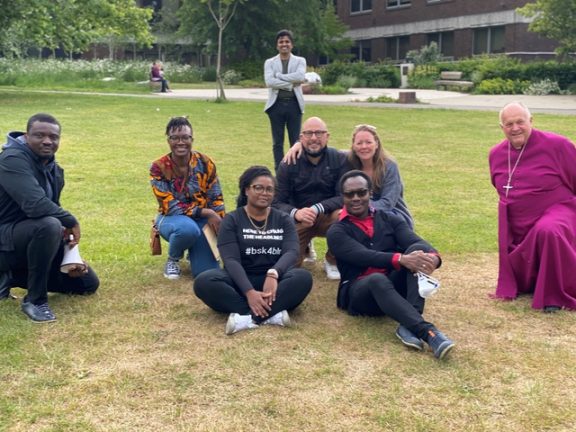What is Racial Justice?
Racial justice is the equal treatment of everyone regardless of ethnicity or race. To achieve racial justice, societies must tackle racial prejudice, discrimination and dismantle systems that disproportionately harm some while favouring others. Racial justice reckons with the legacies of discrimination, removes existing barriers to racial equality, and promotes equity.
You may ask, why are we not addressing all justice? Of course, we believe in all justice, but this strategy focuses on the racial element of our unequal structures.
Throughout this strategy we will use the term UKME/GMH which stands for ‘United Kingdom Minority Ethnic/Global Majority Heritage’. This term is used to reflect that 85% of the global population do not identify as white. This term challenges the normativity of a white majority or Eurocentric perspective.
It is easy for those with inherited advantage to say we are all equal and all justice matters, yet evidence shows that UKME/GMH individuals from our communities do not hold positions in senior roles within the diocese, are not being represented at synod and are not choosing to follow a vocational pathway. All justice is not equal until we address these areas individually and with the weight they deserve.
Why is it Important to Have a Racial Justice Strategy?
The report ‘From Lament to Action’ and its recommendations, have set in motion the groundwork for our Racial Justice strategy. The strategy was overseen by our Racial Justice Focus Group – a remarkable gathering of people with lived experience, both lay and ordained, who came together from across the diocese seeking to bring about positive change.
At the heart of the strategy is a recognition that institutional racism is a sin. Racial sin disfigures God’s image in each of us. Racial sin dehumanises, and takes away a God-given right to human dignity.
In committing to this strategy, we aim to embed a process to eliminate racial disparities in our structures and to improve outcomes for everyone. It will be achieved by the intentional and continual practice of adapting policies and practices, systems and structures. It will be achieved by prioritizing measurable change in the lives of UKME/GMH people within our communities.
This strategy targets interventions to eliminate, mitigate and prevent bias at the institutional level, where interventions are most needed. Focusing at the institutional level can prevent opportunities for bias from occurring. There is a need to instill practices, policies and protocols to address institutional racism.
We have already identified racial inequities across our institutions and our policies. Social structures, history and culture have highlighted how racism operates in a system of power and results in racial inequities across all indicators for success. A diocesan racial justice strategy allows us to move forward with a shared vision and understanding. Through open and honest conversations and working together we can shift power to advance transformative and equitable change to our culture by addressing underrepresentation with data monitoring, removal of recruitment barriers, improved voting practices, theological education, bias awareness and training.
